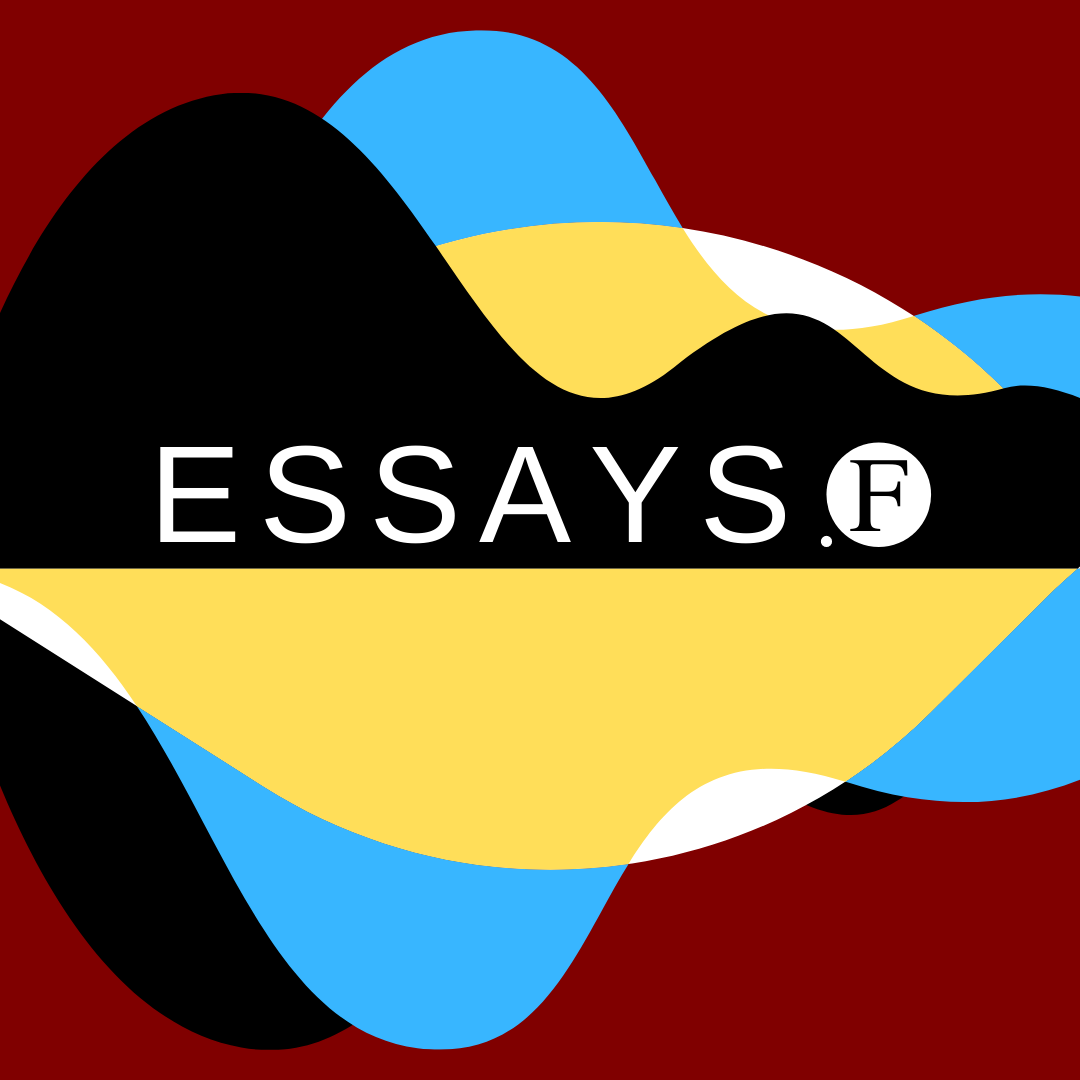Thinking Small about the Ideal Society
Brian Kogelmann on living better by living more apart
Political philosophers are in the business of thinking about what the ideal society looks like. Perhaps the most famous articulation of such an ideal can be found in John Rawls’s A Theory of Justice. Here, Rawls introduces the notion of a society being well ordered. A well-ordered society is a society in which we all accept the same principles of justice and, moreover, our society’s basic institutions are regulated by these principles. To be an ideal society, Rawls argues, is also to be a well-ordered society.
There are good reasons for thinking that an ideal society is also a well-ordered society. Indeed, the reason Rawls introduces the notion of a well-ordered society in the first place is because he thinks such societies possess certain features that make for an attractive ideal. What are these features? For one, there is social unity: in such a society we all work together to bring about what justice requires. Here, politics looks more like a shared enterprise rather than a competition. As another feature, it is likely that the coercive institutions constituting such a society live up to public scrutiny when we ask why they require of us what they do: we all collectively know that our basic institutions were implemented to fulfil the demands of justice. And finally, Rawls argues that when we comply with the demands of justice in a well-ordered society, we realize our autonomy: we act in accordance with rules and institutions that we would self-legislate or give ourselves.
Though attractive as part of an ideal, the requirements of well-orderedness are quite demanding. Not only are they demanding, but they are utopian in a pejorative sense. Recall that part of the definition of well-orderedness is that we all agree on what justice requires. Rawls would later realize that this is not possible in a liberal society—and, importantly, the ideal society is a liberal society according to Rawls. The very institutions that compose a liberal society—allowing for freedom of thought, speech, and conscience—would lead us to endorse different and conflicting accounts of what justice demands. But when we disagree about what justice requires, those attractive features that come along with society being well ordered—social unity, public scrutiny, and autonomy—may be lost, for disagreements about justice are incompatible with the basic definition of well-orderedness. The ideal society does not look so ideal after all. What is the Rawlsian to do in response?
Perhaps they could offer the following revision: even though we do not all accept the same principles of justice, the ideal society is still organized around one conception of justice nonetheless. Here we retain a core feature of well-orderedness, insofar as society is regulated around one conception of justice; but we drop the other, namely, that we all agree with this conception. Now if the Rawlsian did this, then they still retain some attractive features that come along with the original definition of well-orderedness. Laws are still likely to live up to public scrutiny because we know why they were implemented: to carry out the demands of a conception of justice—though now, according to some, not the correct conception of justice. Social unity will be realized in a sense: though we do not all think the goal we pursue (implementing the governing conception of justice) is best (for we disagree about the conception of justice we try to implement), we still collectively pursue this goal nonetheless. But we will likely not realize our autonomy in such a society: many of us would not self-legislate the conception of justice we comply with. And, moreover, there seems something manifestly unfair about such a social order. Those whose most preferred conception of justice is the governing conception perpetually win out in the political process. Everyone else is a perpetual loser.
In response to these worries, maybe the Rawlsian gives up on the idea of justice all together. Why think the ideal society should be organized around one and only one conception of justice in the first place? Why not let politics be governed by the interests of the citizenry rather than abstract principles? Arguably, though, this path forward has greater costs than the one just examined. For there could be no public scrutiny in such a society, in that it would be difficult to know why our policies end up looking the way they do. Instead of policies reflecting the demands of a conception of justice they were implemented to serve, they will be the complex result of a log-rolling and bargaining process whose inner workings may be utterly mysterious to us. Moreover, social unity is also lost: if we do not all work to implement a conception of justice, then politics looks more like a competition than a shared enterprise. And finally, it is also hard to see how we could realize our autonomy in such a society: why think a politics that looks like this would result in rules that we would self-legislate?
What, then, is the Rawlsian to do? Abandon the project of articulating an ideal society? Or perhaps just temper expectations about what a realistically utopian ideal might actually look like? I do not think the Rawlsian need do either. Instead, they need to re-imagine what the ideal society looks like by rethinking some of the basic assumptions they make in their theorizing. One such assumption Rawlsians—and, indeed, almost all political philosophers—make is that the ideal society is a single political unit to be regulated by a single centralized government. According to the original definition of well-orderedness, it is everyone in society as a whole that endorses a single conception of justice. And it is the institutions constituting society as a whole that are regulated by a single conception of justice.
Many real world social and political orders, however, do not treat society as a single political unit to be regulated by a single centralized government. Think here of federalist structures like that of the United States of America. Though, arguably, the federalist structure has decayed over time and has been subject to more and more centralization, the de jure layout of the United States’ federalist structure separates society into several distinct governance units, who may then issue their own and oftentimes radically different policies that only those in their jurisdictions must follow. Different states can decide their own welfare policies, criminal laws and procedures, which public goods are to be provided, and so on.
Though unfamiliar to many political philosophers, the idea of decentralized governance structures is more familiar to economists and political scientists. In what is now a quite famous essay, authors Vincent Ostrom, Charles M. Tiebout, and Robert Warren examine the idea of polycentricity by taking a close look at governance structures in metropolitan areas. The authors begin by noting that metropolitan governance usually consists of overlapping jurisdictions of authority, duplication of functions concerning the provision of public goods and services, and many centres of decision-making that exist independent of one another. This is opposed to monocentric approaches to governance, where authority, decision-making, and the provision of public goods and services are limited to a single, centralized governance unit. Though many at the time argued that polycentric governance structures were wasteful because they often duplicated functions, the authors argued that there may be some non-obvious benefits to polycentricity. For instance, the decentralized nature of a polycentric regime may give rise to market-like competition among different political units, which can result in more efficient provision of public goods.
There are other benefits to polycentric governance structures, however, besides their ability to induce quasi-market competition. Namely, polycentricity allows for diverse preferences to be satisfied. Disagreement over how our schools should be run, whether we ought to be able to own guns, or whether we ought to be able to smoke marijuana need not result in winners and losers in the political process. In a polycentric governance structure, different political units can cater to diverse individual preferences. Instead of living in constant strife with one another, polycentricity allows us to live better together by, essentially, allowing us to live more apart.
This is a key lesson the Rawlsian can pick up on. For recall their main problem: there are attractive features that come along with a society being well ordered, but a society cannot be well ordered so long as we disagree about justice. But though society as a whole cannot realistically be well ordered, it is more likely that individual political units within an overarching polycentric governance structure can better approach well-orderedness when compared to centralized governments. Instead of living in a society where persons constantly fight over egalitarian versus libertarian schemes of redistribution, a polycentric governance structure allows both camps to have their day.
Now of course it is also utopian in a pejorative sense to think that individual governance units within a polycentric order will be well ordered: this would implausibly require that we perfectly sort ourselves into governance units according to the conceptions of justice we think are best. This is not the claim. Rather, the claim is that decentralized governance units better approach being well ordered when compared to single centralized governance units, in that a comparatively higher proportion of us residing in decentralized governance units agree that the demands of justice are being carried out when compared to the number of us residing in a single centralized governance unit who think this. This does not guarantee that those attractive features Rawls thought accompanied well-ordered societies will be met. But, plausibly, they will be met to a greater degree when compared to centralized political orders. Public scrutiny will be realized to a greater degree in that there will likely be greater coherence between the policies governing us and what we think justice requires. Our sense of social unity will be greater within our decentralized political units for there is greater agreement. And more of us will realize our autonomy, in that a greater number of us will live under laws that we would self-legislate, for a greater number of us think that we live in a society where the demands of justice are carried out.
Above I said that political philosophers often do not think in terms of polycentric governance systems. Instead, they usually think in terms of centralized governments regulating single political units. But there are some exceptions to this. In his famous (or perhaps infamous) Anarchy, State, and Utopia, Robert Nozick sketches his vision of the ideal society. And in many ways, it looks quite similar to what we just discussed: Nozick argues that utopia will consist of multiple utopias, where we can pursue our own conceptions of the good uninterrupted by others pursing their own accounts of the good. Famously, Rawls and Nozick were intellectual rivals. But as this essay shows, this may not be so. Once we recognize the fact that we disagree sharply with one another and that such disagreements are not going away anytime soon, then perhaps the Rawslian ideal society and the Nozickian ideal society don’t look so different after all.
The Source Code
This essay is based on the article ‘Justice, Diversity, and the Well-Ordered Society’ by Brian Kogelmann, published in The Philosophical Quarterly.






